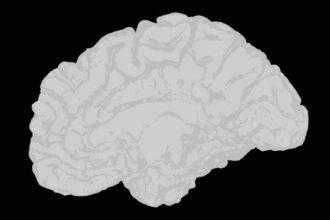Depersonalization Derealization Disorder (DPDR) is a complex mental health condition that can leave you feeling detached from your own thoughts, feelings, and sense of self. It often manifests as a persistent or recurrent feeling of being an outside observer of your own life, as if you are watching yourself from a distance. This sensation can be disorienting and frightening, leading to a profound sense of confusion about your identity and reality.
You may find yourself questioning whether you are truly present in your own life or if everything around you is merely a figment of your imagination. The disorder is classified under dissociative disorders, which are characterized by disruptions in consciousness, memory, identity, or perception. While many people experience fleeting feelings of depersonalization or derealization during stressful situations, those with DPDR experience these sensations persistently, often for extended periods.
Understanding this disorder is crucial for recognizing its impact on your life and the lives of those around you. It is essential to differentiate between occasional feelings of detachment and the chronic nature of DPDR, which can significantly impair your ability to function in daily life.
Key Takeaways
- Depersonalization Derealization Disorder (DDD) is a mental health condition characterized by feeling detached from oneself and the surrounding environment.
- Symptoms of DDD may include feeling like an outside observer of one’s thoughts and actions, emotional numbness, and distorted perception of time and space.
- DDD can significantly impact daily life, leading to difficulties in relationships, work, and overall functioning.
- While DDD is not considered dangerous in itself, it can lead to distress and impairment in various areas of life.
- Potential risks and complications associated with DDD include increased risk of developing other mental health conditions and challenges in seeking appropriate treatment.
Symptoms and Causes of Depersonalization Derealization Disorder
The symptoms of DPDR can vary widely from person to person, but they generally include feelings of detachment from oneself (depersonalization) and a sense of unreality regarding the external world (derealization). You might feel as though you are living in a dream or that the people and objects around you are not real. These experiences can be accompanied by emotional numbness, difficulty concentrating, and a distorted sense of time.
You may also struggle with anxiety or depression as a result of these overwhelming sensations. The causes of DPDR are not entirely understood, but several factors may contribute to its development. Traumatic experiences, such as abuse or accidents, can trigger dissociative symptoms as a coping mechanism.
Additionally, high levels of stress or anxiety can exacerbate feelings of depersonalization and derealization. Some researchers suggest that a history of mental health issues, such as depression or anxiety disorders, may increase the likelihood of developing DPDR. Understanding these symptoms and potential causes can help you identify whether you or someone you know may be experiencing this disorder.
The Impact of Depersonalization Derealization Disorder on Daily Life

Living with DPDR can significantly affect your daily life and overall well-being. The persistent feelings of detachment can make it challenging to engage fully in relationships, work, or social activities. You may find it difficult to connect with others emotionally, leading to feelings of isolation and loneliness.
Moreover, the cognitive effects of DPDR can hinder your ability to concentrate and perform tasks effectively. You might struggle with decision-making or feel overwhelmed by everyday responsibilities.
This can lead to increased anxiety and frustration, further exacerbating the symptoms of the disorder. Understanding how DPDR impacts your life is crucial for seeking appropriate support and developing strategies to cope with its challenges.
Is Depersonalization Derealization Disorder Dangerous?
| Question | Answer |
|---|---|
| Is Depersonalization Derealization Disorder Dangerous? | Depersonalization Derealization Disorder is not considered dangerous in the sense of causing physical harm to oneself or others. However, it can significantly impact a person’s quality of life and mental well-being, leading to distress and impairment in daily functioning. |
While DPDR itself is not classified as a dangerous condition in the traditional sense, it can lead to significant distress and impairment in functioning. The feelings of detachment and unreality can be alarming and may cause you to question your sanity or reality. This existential crisis can lead to increased anxiety and depression, which may pose risks if left unaddressed.
It is essential to recognize that while DPDR may not be life-threatening, the emotional toll it takes on your mental health can be profound. Additionally, individuals with DPDR may engage in risky behaviors as a way to cope with their feelings of detachment. For instance, you might turn to substance abuse or self-harm as a means of escaping the discomfort associated with the disorder.
These behaviors can have serious consequences for your physical and mental health. Therefore, while DPDR itself may not be dangerous, the associated risks and complications warrant serious attention and intervention.
Potential Risks and Complications Associated with Depersonalization Derealization Disorder
The potential risks and complications associated with DPDR are multifaceted. One significant concern is the development of co-occurring mental health disorders. Many individuals with DPDR also experience anxiety disorders, depression, or post-traumatic stress disorder (PTSD).
These conditions can complicate the treatment process and exacerbate the symptoms of depersonalization and derealization. If you find yourself struggling with multiple mental health issues, it is crucial to seek comprehensive care that addresses all aspects of your well-being. Another risk associated with DPDR is the impact on your relationships and social life.
The feelings of detachment can create barriers to forming meaningful connections with others. You may withdraw from friends and family due to the overwhelming nature of your symptoms, leading to isolation and loneliness. This social withdrawal can further perpetuate feelings of depersonalization, creating a vicious cycle that is difficult to break.
Recognizing these risks is essential for taking proactive steps toward recovery and seeking support.
Treatment Options for Depersonalization Derealization Disorder

Treatment for DPDR typically involves a combination of psychotherapy and medication, tailored to meet your individual needs. Cognitive-behavioral therapy (CBT) is one effective approach that helps you identify and challenge negative thought patterns associated with depersonalization and derealization. Through CBT, you can learn coping strategies to manage your symptoms and gradually re-engage with reality.
In some cases, medication may be prescribed to address co-occurring conditions such as anxiety or depression. Antidepressants or anti-anxiety medications can help stabilize your mood and reduce the intensity of your symptoms. However, it is essential to work closely with a mental health professional to determine the most appropriate treatment plan for your specific situation.
Understanding the available treatment options empowers you to take an active role in your recovery journey.
Coping Strategies for Individuals with Depersonalization Derealization Disorder
In addition to professional treatment, there are several coping strategies you can employ to manage the symptoms of DPDR effectively. Mindfulness practices, such as meditation or deep breathing exercises, can help ground you in the present moment and reduce feelings of detachment. Engaging in physical activities like yoga or walking can also promote a sense of connection between your mind and body.
Establishing a strong support network is another vital coping strategy. Surrounding yourself with understanding friends or family members who can provide emotional support can make a significant difference in your recovery process. Additionally, joining support groups for individuals with similar experiences can help you feel less isolated and provide valuable insights into managing your symptoms.
Seeking Help for Depersonalization Derealization Disorder
If you suspect that you or someone you know may be experiencing DPDR, seeking help is crucial for effective management and recovery. A mental health professional can conduct a thorough assessment to determine the presence of DPDR and any co-occurring conditions that may require attention. Early intervention is key in addressing the symptoms before they escalate into more severe issues.
Whether through therapy, support groups, or medication management, there are resources available to assist you on your journey toward healing. By taking proactive steps to seek help, you are investing in your mental health and well-being, paving the way for a more fulfilling life free from the constraints of depersonalization and derealization.
Depersonalization-derealization disorder (DDD) can be a distressing condition, characterized by persistent feelings of detachment from one’s body or surroundings. While it is not inherently dangerous, the disorder can significantly impact an individual’s quality of life, leading to anxiety and depression if left unaddressed. For those seeking more information on the implications and management of DDD, a related article can be found on Unplugged Psych’s website. This resource provides insights into the disorder and offers guidance on coping strategies. You can read more about it by visiting Unplugged Psych.
LEARN MORE About Depersonalization & Derealization
FAQs
What is depersonalization-derealization disorder (DDD)?
Depersonalization-derealization disorder (DDD) is a mental health condition characterized by a persistent or recurring feeling of being detached from one’s body (depersonalization) and/or feeling that the world around them is unreal or distorted (derealization).
Is depersonalization-derealization disorder dangerous?
DDD is not inherently dangerous in the sense of causing physical harm to oneself or others. However, the symptoms of DDD can be distressing and disruptive to daily life, leading to significant impairment in functioning and quality of life.
Can depersonalization-derealization disorder lead to other mental health issues?
There is evidence to suggest that individuals with DDD may be at increased risk for developing other mental health issues, such as anxiety, depression, and substance abuse. It is important for individuals with DDD to seek appropriate mental health support and treatment.
What are the potential complications of depersonalization-derealization disorder?
Complications of DDD may include impaired social and occupational functioning, increased risk of developing other mental health disorders, and reduced quality of life. It is important for individuals with DDD to seek professional help to manage their symptoms and improve their overall well-being.
How is depersonalization-derealization disorder treated?
Treatment for DDD may include a combination of psychotherapy, medication, and self-help strategies. Cognitive-behavioral therapy (CBT) has been shown to be effective in helping individuals manage and reduce their symptoms of DDD. It is important for individuals with DDD to work with a mental health professional to develop a personalized treatment plan.




